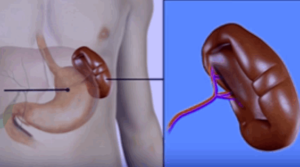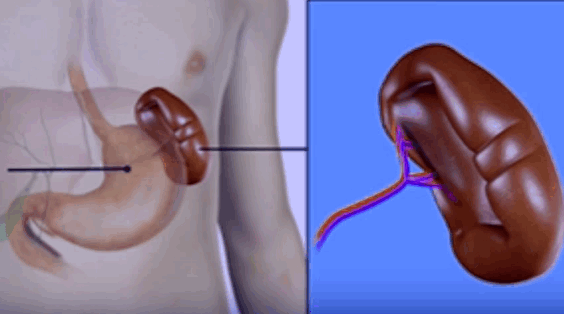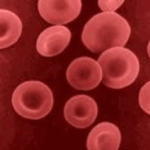The body is made up of many organs that play different functions. The spleen is one of the organs you find in vertebrate animals. In body, the spleen works as a filter to purify blood, remove microbes, and get rid of damaged or worn out red blood cells. The organ also helps with the immune system because it produces white blood cells that are responsible for fighting infections and synthesizing antibodies. While the spleen has many important functions within the body, it isn’t a vital organ for an individual to survive meaning it is possible that a person can live without a spleen. Other organs can take the functions of spleen if it’s not present in the body and be able to fight infections as well as remove worn out red cells. For example, the liver is able to adapt and enhance it ability in fighting infections and removing redundant red blood cells.
Anatomical Location of the Spleen
A person’s spleen is situated in the area on the upper left of the abdomen. It is behind the stomach and under the diaphragm. The spleen is soft, purple, and takes the shape of a tiny, smooth catcher’s mitt having notches within the upper front edge. While the weight and size of the organ may vary from individual to another, averagely a healthy adult has a spleen that is roughly five inches in length, three inches in width, and one and a-half inch thickness. The weight of spleen is about six ounces for a healthy person. Because of infections and other conditions, a person’s spleen may enlarge and when this happens, the weight increases to about four pounds.
The spleen is considered a highly vascular organ containing many vessels carrying and circulating fluids within the body. It is an organ that works closely with the lymph and blood. It can be affected by infections, parasites, liver disease, malignancies, and other health conditions or diseases.

Function of the Spleen
The spleen is a busy organ usually on the front lines handling various important roles that help the body remain healthy and function efficiently. When you compare its size with the work it does, you will find that it’s an organ full of activity.
The main function of the spleen is, of course, filtering the blood. It is able to recognize and get rid of the old, malformed, and damaged erythrocytes or red blood cells in body. The spleen does what we may call “quality control” of the blood circulating in body making sure that only red cells in good shape and form are able to remain in the bloodstream.
To filter the blood, the cells pass through a web or maze of narrow passages. As the blood flows through the spleen, healthy red cells pass through to continue circulating in the body, however, the worn out, damaged, or old blood cells are trapped and broken down by macrophages present in the spleen.
When we talk of macrophages, they are large white cells specializing in destruction of unhealthy red cells.
A very interesting thing is that the spleen is an economical organ in the sense that even though it traps malformed or old cells, it does not let useful components to be lost. It will save things like the iron present in the old or malformed cells that are being broken down. The iron it saves from those cells is stored by the spleen in the form of bilirubin or ferritin before being taken back to the bone marrow, the location where hemoglobin is made. And you know hemoglobin is a very important protein in the blood. It helps transport oxygen from the lungs all the way to different parts of the body where it’s needed.
The spleen also performs the function of storing blood. Depending on the body’s need for blood, the blood vessels in spleen of a person can contract and expand or get wider and narrower to hold or let blood away. When the blood vessels expand, the spleen is able to hold blood, say a cup of excess blood. In the event that the body needs more blood than usual, for example, after an injury that makes the body loose blood, then the spleen is able to respond thereby releasing the preserved blood into the system.
The immunity of the body also counts on the work of the spleen. The same way the spleen can detect, hold, and breakdown unhealthy or old and malformed red cells, so can it pick unwelcomed microbes like viruses and bacteria circulating in blood. The moment the unwanted microbes are detected within the bloodstream, the spleen together with the lymph nodes, get into action. They create an army of defending cells known as lymphocytes.
When talking of lymphocytes, they are a type of white cells responsible in the production of antibodies. Antibodies are special proteins that help to kill or weaken infection-causing microbes like viruses and bacteria. Both antibodies and white cells prevent infections from spreading to other parts of the body by netting germs before destroying them.
Can you live without a spleen?
We have seen that the sleep is an important and useful organ, however, it is not vital. You may have the spleen removed and continue living. Removal of spleen may happen if it is injured, severely diseased, or it is taken out when a transplant for other organs is being done. Other organs and systems in the body can take over the various functions of spleen.
The liver and lymph nodes, in particular, can assume the role of spleen. What you need to understand, however, is that, because of the important part the spleen plays in fostering the immune system, you may find that people who don’t have the organ tend to be susceptible to infections than those who have it. An individual without spleen may be prescribed oral antibiotics to prevent infections. That being said, it is not uncommon to find people living without a spleen.
Spleen Problems
Many problems are associated with the spleen and they include:
Ruptured or lacerated spleen: The main cause for spleen ruptures or lacerations is trauma from something like a contact sport or a car accident. A ruptured spleen, without a person having emergency care, it could result in internal bleeding that may be termed as life threatening.
Enlarged spleen: This is also called splenomegaly, and it’s a serious though treatable condition. Having an enlarged spleen puts an individual at risk of having a rupture. Enlargement of spleen may occur in children with mononucleosis and in adults with disorders like Gaucher’s and Neimann-Pick disease. Enlarged spleen may also be contributed to by bacterial or viral infections, liver disease or cirrhosis, parasitic infection, blood cancer, and pressure being put on veins of the spleen or liver.
Spleen cancer: It’s rare to have cancers originating from the spleen. However, lymphomas or blood cancers occurring in the lymphatic system have been seen to attack the spleen (metastasize). Leukemia, which is blood cancer originating from the bone marrow, may spread to attack the spleen.
Spleen removal: A surgical removal of spleen is known as splenectomy. It is a minimally invasive procedure or laparoscopic surgery that has few risks compared to traditional surgeries. Splenectomay is conducted if the spleen is ailing from blood disorders, trauma, cancer, hemolytic anemia, and hypersplenism.


